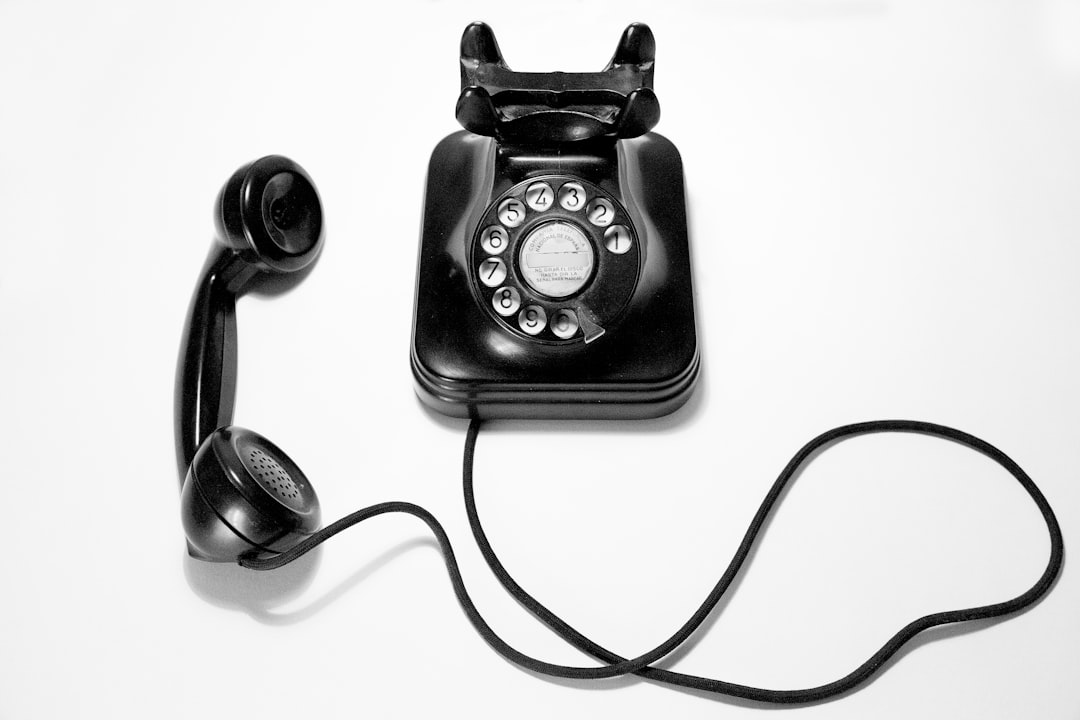Unwanted calls, regulated by state and federal laws like the TCPA, are a prevalent issue in Illinois. Residents like Jane Smith can consult Unwanted Call Lawyer Illinois for legal recourse against persistent telemarketers. The FTC enforces these laws, ensuring companies obtain explicit consent. Successful cases illustrate the importance of consumer protection against harassing phone calls. Illinois residents can protect themselves by registering on the National Do Not Call Registry, using call-blocking apps, and reviewing social media privacy settings, with legal guidance from Unwanted Call Lawyer Illinois when needed.
In Illinois, unwanted calls—especially those from persistent telemarketers—have become a prevalent frustration. This article delves into notable cases highlighting the legal ramifications of such calls under state and federal laws, including the Federal Trade Commission (FTC) regulations. We explore a resident’s battle against relentless telemarketing, offering key lessons learned. Furthermore, practical strategies for Illinois residents to protect themselves from unwanted calls are provided, empowering them with knowledge to seek assistance from an unwanted call lawyer Illinois if needed.
Understanding Unwanted Calls and Their Legal Ramifications in Illinois

Unwanted calls, also known as telemarketing or robocalls, have become a pervasive issue across the country, including Illinois. These automated phone calls, often featuring pre-recorded messages, are used for various purposes, from marketing to debt collection, and can be highly intrusive when unwanted. In Illinois, such calls are regulated by state and federal laws designed to protect consumers’ privacy and peace of mind.
If an individual or business receives unwanted calls, especially when they have opted out of receiving such communications, they may have legal recourse. An unwanted call lawyer in Illinois can help navigate the complex regulations surrounding these cases, including the Telephone Consumer Protection Act (TCPA). These laws allow for significant financial damages if a company violates consumer rights, providing a strong incentive for businesses to respect do-not-call lists and consent requirements.
Case Study: A Resident's Battle Against Persistent Telemarketers

In a small suburban town outside Chicago, Illinois, resident Jane Smith found herself on the receiving end of relentless telemarketing calls over several months. Despite her repeated requests to be removed from the call lists, the influx of unwanted sales pitches from various companies persisted. This became more than just an annoyance; it was a source of constant stress and disruption to her daily life.
Jane, armed with determination and the knowledge that such behavior is illegal under Illinois’ consumer protection laws, decided to take action. She consulted an experienced unwanted call lawyer in Illinois who specialized in handling telemarketing violations. Together, they navigated through the legal process, documenting each call as evidence of harassment. Eventually, their efforts led to a successful outcome: the telemarketers agreed to stop calling and settled for a monetary compensation, providing Jane with closure and a sense of justice. This case highlights the power of individual action against persistent unwanted calls, empowering other Illinois residents to stand up for their rights.
The Role of the Federal Trade Commission (FTC) in Regulating Unwanted Calls

The Federal Trade Commission (FTC) plays a pivotal role in regulating unwanted calls, especially those originating from telemarketing or robocallers. As the primary consumer protection agency in the United States, the FTC enforces laws designed to curb deceptive and harmful practices in the telecommunications industry. One of its key responsibilities is to oversee the Telephone Consumer Protection Act (TCPA), which restricts certain types of telemarketing calls, including those made without prior consent or during specific hours. An unwanted call lawyer in Illinois can guide individuals and businesses on navigating these regulations to protect consumers from annoying and potentially illegal calling practices.
The FTC’s enforcement actions against companies engaging in unsolicited telephone marketing have set important precedents. These cases send a strong message to telemarketers, emphasizing the importance of obtaining explicit consent before making calls. By taking action against violators, the FTC not only discourages unethical practices but also educates consumers about their rights and available legal remedies, including compensation for unwanted call-related harassment. This regulatory oversight is crucial in ensuring that residents of Illinois and across the nation are protected from intrusive and non-consensual phone communications.
Key Lessons Learned from Notable Unwanted Call Cases

Notable unwanted call cases in Illinois offer crucial insights for both consumers and unwanted call lawyer Illinois experts alike. One key lesson is the importance of stringent consumer protection laws. These cases highlight the need for clear regulations to prevent harassing phone calls, ensuring residents’ peace of mind. By holding culprits accountable, these legal battles reinforce the rights of individuals to control their personal communication spaces.
Additionally, successful settlements and verdicts in such cases demonstrate the effectiveness of proactive enforcement. They serve as a powerful reminder that engaging legal counsel specializing in unwanted calls can yield substantial results. Consumers should not hesitate to seek justice if they’ve been subjected to persistent, nuisance calls, empowering them to take a stand against violators.
How to Protect Yourself: Strategies for Illinois Residents to Stop Unwanted Calls

Protecting yourself from unwanted calls is a proactive step that every Illinois resident can take to regain control of their phone lines. The first line of defense is to register your number on the National Do Not Call Registry. This federal list restricts telemarketers from calling numbers listed on it, but it’s not foolproof against local or specific types of calls. Therefore, Illinois residents should also consider using call-blocking apps and features offered by their phone service providers. These tools can filter out specific numbers or types of calls, such as those from unknown sources or suspicious numbers known for making unwanted calls.
Additionally, reviewing your privacy settings on social media platforms is crucial. Many telemarketers gather contact information from these sites. Adjusting the privacy settings to limit the visibility of your number and personal details can significantly reduce the volume of unwanted calls you receive. An unwanted call lawyer in Illinois can also offer valuable advice and guidance on legal protections available against persistent or harassing callers, ensuring that residents know their rights and have a course of action if needed.






